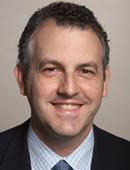 Here are 10 best practices that spine surgeon leaders practice to build a strong clinical and professional reputation.
Here are 10 best practices that spine surgeon leaders practice to build a strong clinical and professional reputation.
1. Give patients a good experience at your practice. Patient satisfaction for the overall healthcare experience is more important today than ever. Spend as much time with patients as possible, either yourself or through physician extenders, so they understand their treatment. Don't keep patients waiting long, and apologize when you do.
"The best way you can make a mark on the field and leave a lasting legacy is by taking excellent care of your patients," says Andrew Hecht, MD, orthopedic surgeon and Co-director of Spine Surgery and Director of the Spine Center at the Icahn School of Medicine at Mount Sinai in New York City. "Word of mouth from patients to patients, and patients to referring physicians, builds your reputation."
Communication is another key aspect of patient satisfaction.
 "One of the most important things spine surgeons can do is take the time to listen and address their concerns. Taking time to help them form realistic expectations of what surgery can offer them is key," says Jennifer Sohal, MD, a spine surgeon with St. Vincent Spine Institute in Los Angeles. "It helps them to know what they are choosing between, what their current status is, what are the real risks of surgery, and how it may help them. Often this requires multiple conversations as there is so much fear present that they often do not hear what you say the first time."
"One of the most important things spine surgeons can do is take the time to listen and address their concerns. Taking time to help them form realistic expectations of what surgery can offer them is key," says Jennifer Sohal, MD, a spine surgeon with St. Vincent Spine Institute in Los Angeles. "It helps them to know what they are choosing between, what their current status is, what are the real risks of surgery, and how it may help them. Often this requires multiple conversations as there is so much fear present that they often do not hear what you say the first time."
2. Build an integrated spine care network. Integrated spine care includes operative and non-operative specialists working together in a coordinate program so patients get the right treatment. This is easy in some settings, such as academic medical centers, but possible in health systems and private practice as well.
"Organize various disciplines in spine into a cohesive program," says Dr. Hecht. "The integrated network and program you build will last over time, even when your career winds down. Hopefully that network will stand the test of time. We need to build programs with orthopedics, neurosurgeons, physiatry, pain management, physical therapy, occupational therapy and everyone else that interacts with spine patients to improve care."
If you can't formally partner with other specialists, reach out and build a professional relationship with the best in your community to strengthen the type of care your patients will receive.
3. Innovate new technology. Spine surgeons can contribute to advancing the field and patient care by developing new devices and techniques. Academicians have access to residents and fellows that can help them with clinical studies determining the results of new treatments, but there are still opportunities for individual spine surgeons to innovate in private practice.
"My partners and I have a spinal device company with 25 to 30 patents," says G. Clay Baynham, MD, a spine surgeon at Palm Beach orthopaedic Institute in Jupiter, Fla. "We take the products through the FDA clearance process and then sell them to other companies in the industry. These products are used worldwide, and that advances the field."
Even if you aren't innovating, device companies need surgeon input as they develop new technology because surgeons know typical issues they have caring for patients. Unfortunately, technological development is now cost-prohibitive because regulatory processes require more resources from companies before putting a product on the market.
"The problem is that it's so cost-prohibitive for surgeons to have a direct impact," says Dr. Baynham. "You become a small piece in a huge machine. The whole industry has its foot on the break for development because insurers don't want to pay for new devices and the government doesn't want to allow it. You have counter incentives to innovation that slows things down."
4. Invest in educating other surgeons and yourself. Career-long education is important to stay on the cutting-edge and build a strong network with colleagues. In an academic setting, surgeons can mentor residents and fellows. Beyond the initial education, surgeons can teach courses for other surgeons as ongoing education or new techniques develop.
"Educate others, including other surgeons as well as internists and therapists so that everyone involved with treating the patient understands what you do as the surgeon," says Amer Samdani, MD, chief of surgery at Shriners Hospital for Children in Tampa. "When we take care of the patients that are multi-faceted, different faces of that care appreciate learning about others. This type of education has been one of the most rewarding parts of my career. I explain postoperative restrictions with therapy and why we order certain tests. That's an important piece of care that can be delivered in any setting."
National conferences are a good opportunity for spine surgeons to stay educated about their field.
"Attend these conferences, both local and national, which will really help you develop a network of similarly-minded people and you'll get to learn from them," says Dr. Samdani. "You should also have appropriate mentors in the community, whether it's someone at your own institution or someone at the national level. These people have seen most things and often welcome junior surgeons to partner with them. That played a huge role in helping to mold my practice and career."
5. Open lines of communication with referring physicians. Promote back and forth dialogue between your office and referring physicians to keep them updated on their patients. Explain why you chose individual treatment methods and follow up with them on a regular basis.
"Give your referral base updates on their patients and about how the surgeries went," says Dr. Samdani. "I'll send my pre-op work-up to them and my thought process. They automatically receive follow-up letters from me. Communication is extremely important, and if something doesn't go right we reach out by phone to the referring physicians to let them know what happened and where we're at."
6. Look critically at your outcomes and share. With electronic medical records and other automated data gathering software, it's easy to look critically at your outcomes and track patient complications. More societies and certification bodies are requiring lists of complications, including infections, and data gathering will help identify issues and improve outcomes in the future.
"It's really helpful to look at your own outcomes critically at the end of the year," says Dr. Samdani. "Look at who you operated on and how they did. This removes us from the patients and allows us to reflect on what worked and what didn't. No matter what setting surgeons are in, we can look at the data and find gaps in treatment. Pick something you are passionate about and fill the gap."
7. Accept complicated patients. Complex patients take more energy and resources, but how surgeons handle these cases will dictate their reputation going forward. If surgeons only accept simple cases with otherwise healthy patients, they won't have a diversified patient base.
"Accepting complicated patients into the practice is an important part of building a reputation in the community," says Dr. Sohal. "When you take care of a wide spectrum of patients, the 'easy' and the 'complicated,' your community understands you are there to care for all patients with spine problems and so when they have any issues related to the spine they send them to you."
 Successfully treating these patients will make you standout locally. "Have the willingness and ability to handle difficult cases, such as complex tumor or scoliosis," says Sean McCance, MD, co-director of spine surgery at Mount Sinai Hospital and director of Spine Associates in New York. "That often entails being at a program in a hospital or facility that has the infrastructure to handle those cases well."
Successfully treating these patients will make you standout locally. "Have the willingness and ability to handle difficult cases, such as complex tumor or scoliosis," says Sean McCance, MD, co-director of spine surgery at Mount Sinai Hospital and director of Spine Associates in New York. "That often entails being at a program in a hospital or facility that has the infrastructure to handle those cases well."
8. Be a team player. Realize that you as the surgeon are only one person among several other specialists they have — or will see — for their care. Help the patient coordinate this care and work with the other specialists on achieving better outcomes.
"We have to take the time to step out of our area of expertise and assess the patient as a whole. If they are being followed by numerous specialists, it is even more difficult to get a complete picture. Your taking the time to help patients gather the information they need to make an informed decision and adequately assess their risk shows the patient that you are trying to care for them, not just operate on them," says Dr. Sohal. "If you recognize that you are part of a healthcare team and facilitate the transfer of information amongst various members, asking for help when you need it, then both your patients and the other member of the healthcare team will see that you are not just a team player, but also a leader."
9. Don't be too quick to cut. Surgeons don't want the reputation of sending all their patients to surgery because most back pain patients benefit from non-surgical care. "There are usually many non-operative things you can do and it's important for surgeons to offer those things and not just jump to surgery," says Dr. McCance. "It's important to connect your patients with high quality services and have a good team and infrastructure so they have a positive experience at your practice."
Spine surgeons can also diversify their expertise to bring in more patients. "Surgeons need to be involved in more aspects of the continuum of care, such as providing braces or injections," says Dr. Baynman. "The advantage for the patient is now they have the convenience to be evaluated and treated irrespective of the nature of their problem when they come to your practice."
10. Practice careful patient selection. Surgeon instincts and proper protocol combine to help surgeons choose right candidates for surgery. "Careful patient selection and offering patients the appropriate surgery is very important in spine," says Dr. McCance. "There are a lot of different procedures out there for different diagnoses and it's important to pick the right procedure for the right patients. Top surgeons can sift through all that and match the appropriate surgery with the right patient."
Surgeons shouldn't be a "one-trick pony" performing the same procedure on everyone, regardless of indications. "You have to be versatile and adaptable," says Dr. McCance. "You can't expect to do the same thing you did in training five years later."
More Articles on Spine Surgeons:
4 Key Metrics for Spine Surgeons to Track
40 Spine Surgeons at Spine & Orthopedic-Focused Hospitals
Spine Care for All Patients: Q&A With Dr. Christopher Kauffman of Premier Orthopaedics


